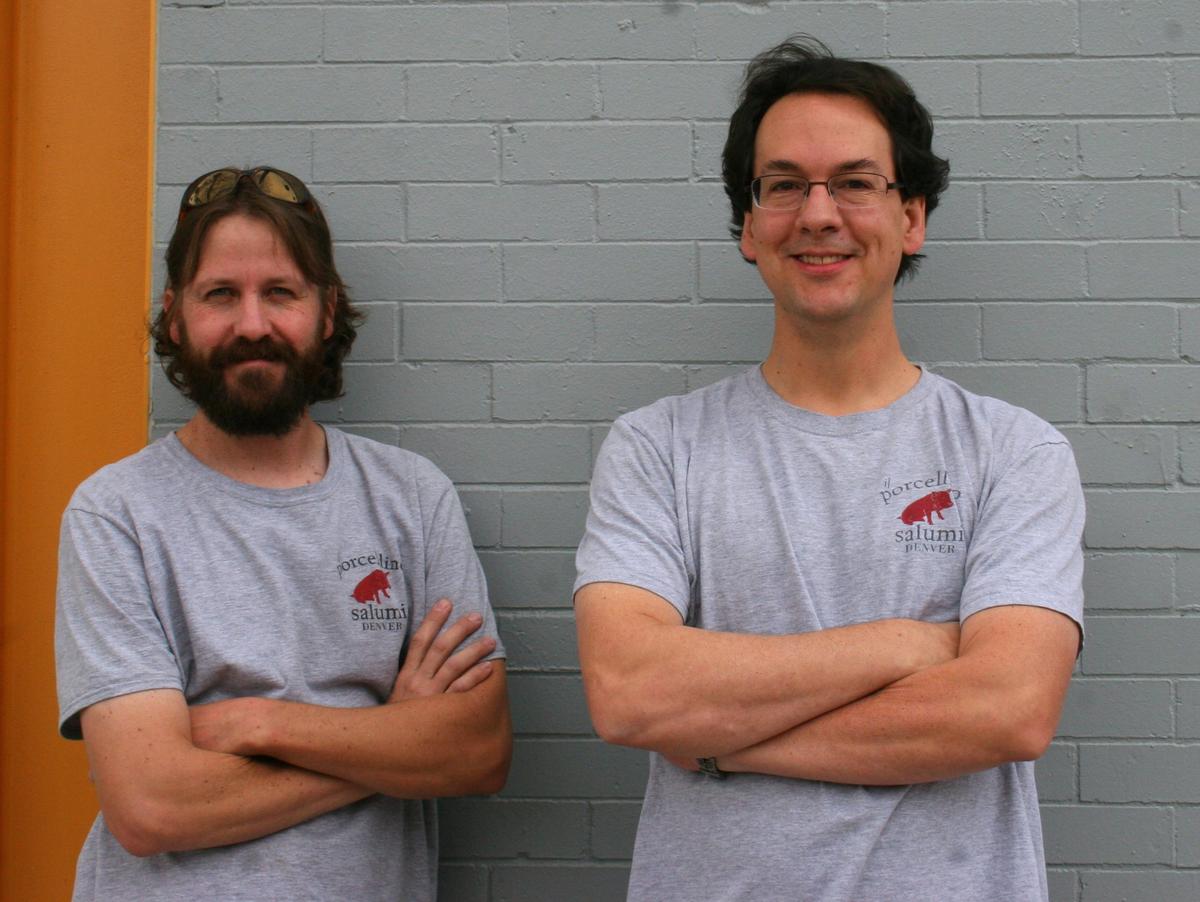The Local newsletter is your free, daily guide to life in Colorado. For locals, by locals.
We all saw the viral headlines a couple weeks ago—”Processed Meats Rank Alongside Smoking As Cancer Causes,” said the Guardian. “Bad News for Bacon,” said NPR. “Processed Meats Do Cause Cancer,” said BBC News. Just a week before the World Health Organization (WHO) released these saddening findings on the carcinogenicity of red and processed meats, Bill Miner and Brian Albano (both formerly of Relish Catering) opened Il Porcellino Salumi, a cured meat emporium and deli.
Walk into the tiny Berkeley shop, and you’ll find a case filled with things like house-made tasso ham, andouille sausage, and tesa (Italian-style, peppercorn-encrusted bacon). The curing chamber, encased in glass behind the food preparation area, is stuffed with prosciutto and hand-tied salumi like cacciatore, coppa, and lonza, all in various stages of curing.

Despite meat’s recent bad press, Il Porcellino is off to a bustling start. “We’ve already had a lot of repeat customers,” says Albano, who has also spent time behind the burners of celebrated restaurants like Luca D’Italia and the late Adega. “The neighbors are interested in where food comes from.” And while it’s true that the WHO would consider just about everything Albano and Miner are making at Il Porcellino to be processed (“meat that has been transformed through salting, curing, fermentation, smoking, or other processes to enhance flavour or improve preservation,” by their definition), the bacon Miner and Albano are producing is a far cry from Oscar Mayer, not only in terms of flavor, but also in regards to methodology.

“We work directly with farmers and ranchers and get to know them on a personal level,” says Miner. Il Porcellino sources all of their animals from within 90 miles of the shop. Though the operation is small-scale, Miner and Albano start with whole animals—and they use just about all of them (see: the chicharrónes and head cheese on offer for proof). The dry-cured salamis take around seven to eight weeks; prosciutto a minimum of nine months. Though the pair began the complicated, time-consuming practice of preserving meats initially as a hobby, they’ve chosen to build their entire business around it, assembling a menu of sandwiches, soups, salads, and sides that incorporate the meats.
Stop in for lunch and order the “Hoggie,” stacked high with coppa cotta, ham, Genoa salami cotta, garlic aïoli, red wine vinaigrette, arugula, and farm tomatoes on a Grateful Bread Company hoagie roll. And even if you’re watching your meat consumption these days, you should still make the trip to Il Porcellino for the “Wook” sandwich, with Ugly Goat Milk Company chrèvre, roasted delicata squash, caramelized apple, carrot-apple purée, and shaved Brussels and kale salad.
4324 W. 41st Ave., 303-447-3206, coloradocured.com








